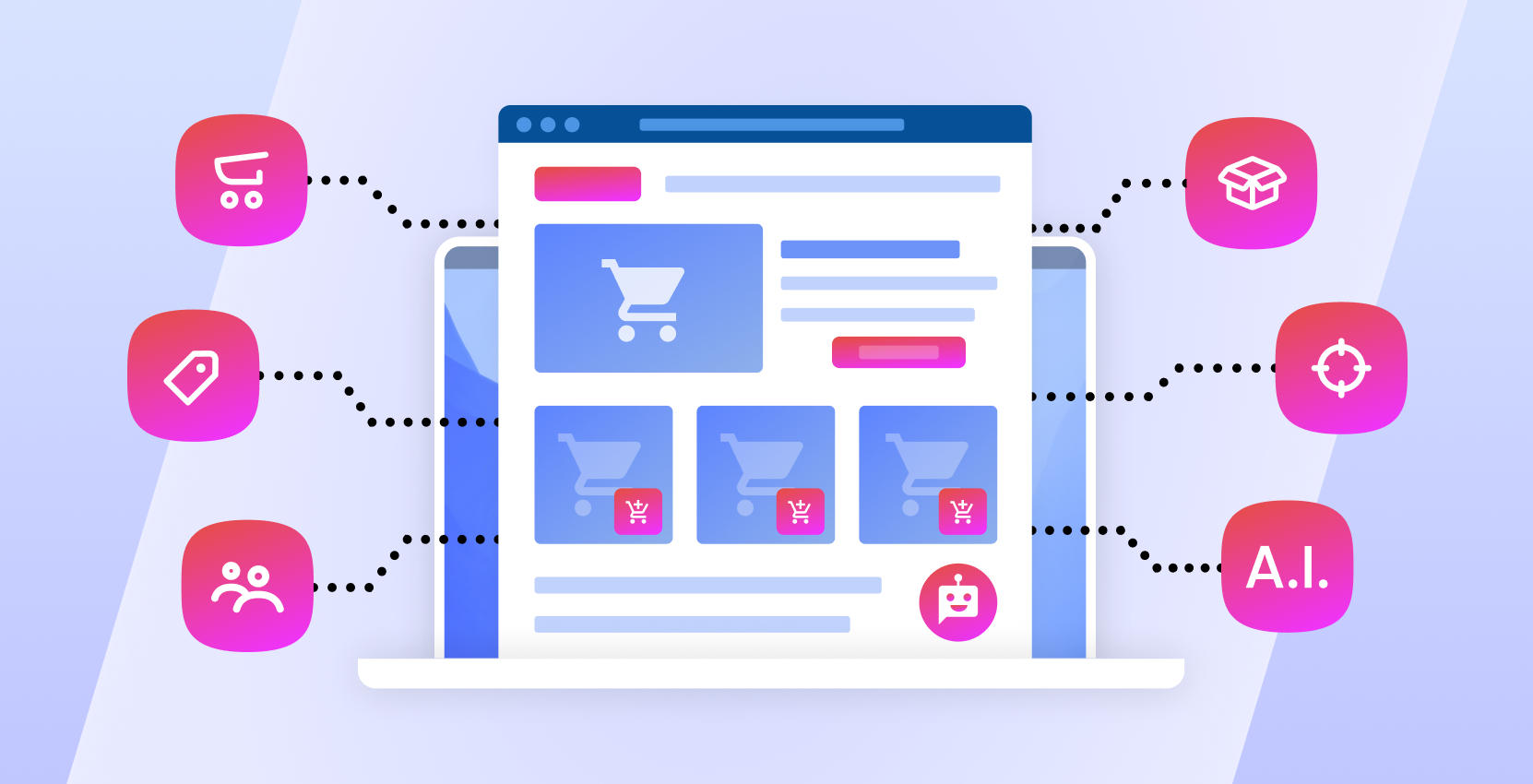

Automation and AI are transforming the world of e-commerce, making life easier for businesses ánd customers. With AI-based automation, you can say goodbye to all those manual, repetitive tasks and say hello to a more productive and efficient future. Who needs a crystal ball when you have AI guiding the way? The future of e-commerce is here - bright and automated!
Basic automation in ecommerce
Nowadays, most ecommerce businesses are already on board with basic automations like chatbots, inventory management, and automated workflows. These automations can already have a major impact on time saving, sales and marketing effectiveness, and error reductions. But, these are only the first steps towards automation. Like we said.. the future of ecommerce automation is bright. The next step for e-commerce businesses is to move beyond basic automation and start using artificial intelligence (AI) to help their customers find exactly what they're looking for.
Rise of AI-based automation
AI can be used to increase overall efficiency, reduce costs, and create a personalised experience for each user. Some examples of AI incorporated ecommerce automations are:
Customer segmentation - AI-driven systems can analyse customer data to identify patterns, carry out behavioural segmentation, optimise engagement strategies, and achieve specific goals by learning and adapting, resulting in highly precise and effective customer targeting.
Personalised Product Recommendations - eCommerce sites can use AI algorithms to suggest products to customers based on their browsing and purchase history.
Chatbots - eCommerce can use AI-powered chatbots to handle customer inquiries and provide support 24/7. These chatbots can provide instant assistance to customers and help reduce response time.
Inventory Management - AI-powered inventory management systems can track product availability, manage stock levels, and place orders. Link this data to your ads for smarter campaigns that are always up to date.
Challenges
Of course, there are challenges that come along with implementing AI based e-commerce automation. The challenge accompanying AI based automation mainly lies in the initial costs of implementation, the complexity of integrating automation into existing e-commerce platforms, the need of accuracy in all customer and company data, and the need for technical expertise within the company to implement and maintain all software.
All in all...
Revolutionise your online game with AI-based automation! The future of e-commerce is here: increased efficiency, cost reduction, and personalised shopping experiences for customers and businesses. Overcome the challenges and reap the benefits of AI-based automation to power your e-commerce success. Get ready for a brighter, more productive, and efficient e-commerce industry powered by the latest in innovation - AI. Embrace the future now!
Latest News

Blog
3 min read
04 April 2025
Breaking Barriers: Why Media and Creative Teams Should Work Together More Often
In advertising, media and creative teams have traditionally worked separately, passing ideas back and forth to get through projects. But as things progress quickly and teams have to work faster than ever, collaboration is no longer optional - it’s essential.

Products and features
4 min read
11 March 2025
How Cape Solves Amazon Storefront Creation Challenges
As businesses grow, managing an increasing number of marketing concepts can become a logistical nightmare. From banners to videos and brand pages, finding and organising these assets across multiple business units often leads to inefficiency and confusion. That's where Cape comes in.

Industry insights
3 min read
20 January 2025
The New Instagram Layout Update: How to Optimise Your Feed for Non-Square Posts
Recently, Instagram has rolled out yet another update. What makes this one different? For casual users, a layout change of your feed may be just another visual element of the app to get used to. For marketers, it affects just about every aspect of your content strategy.

